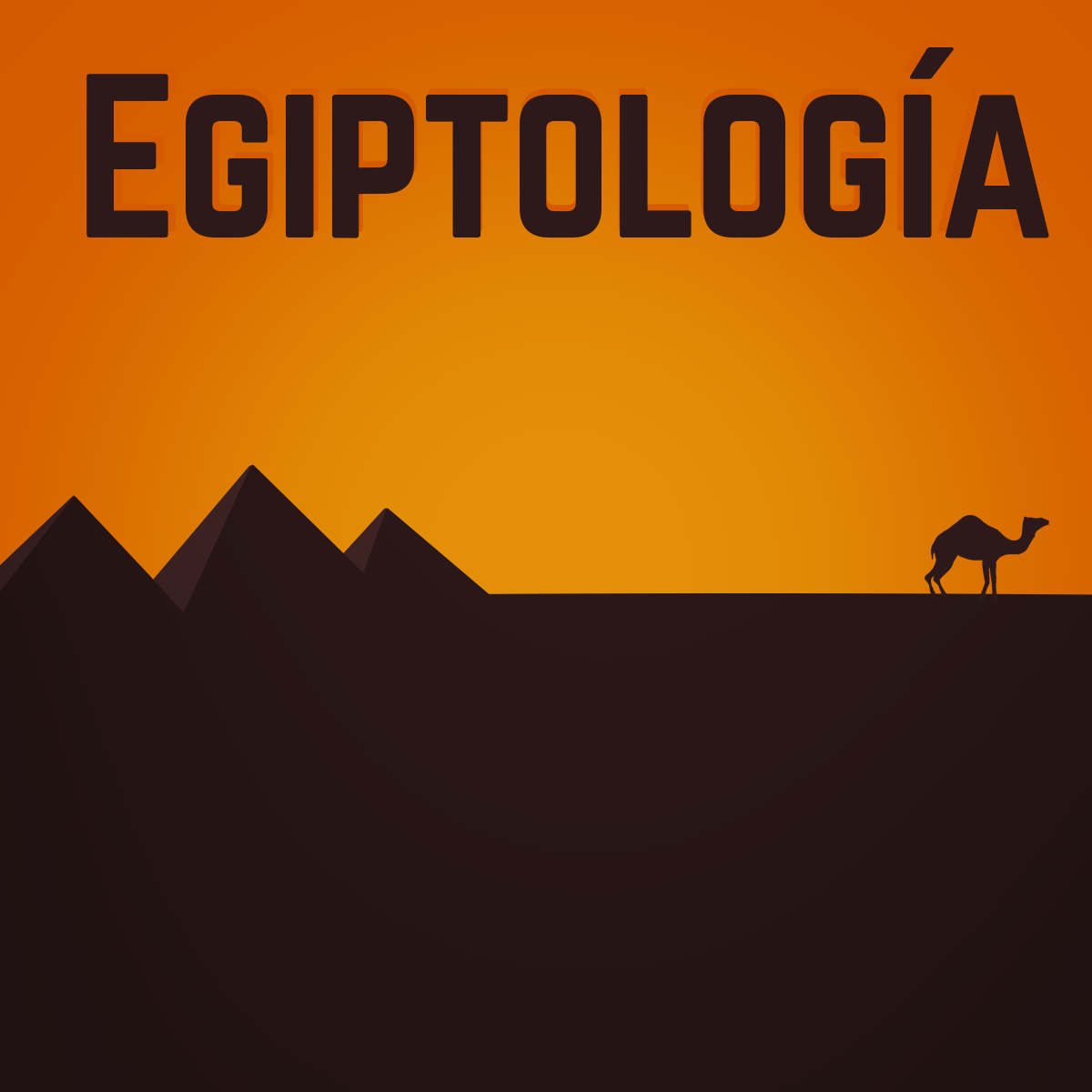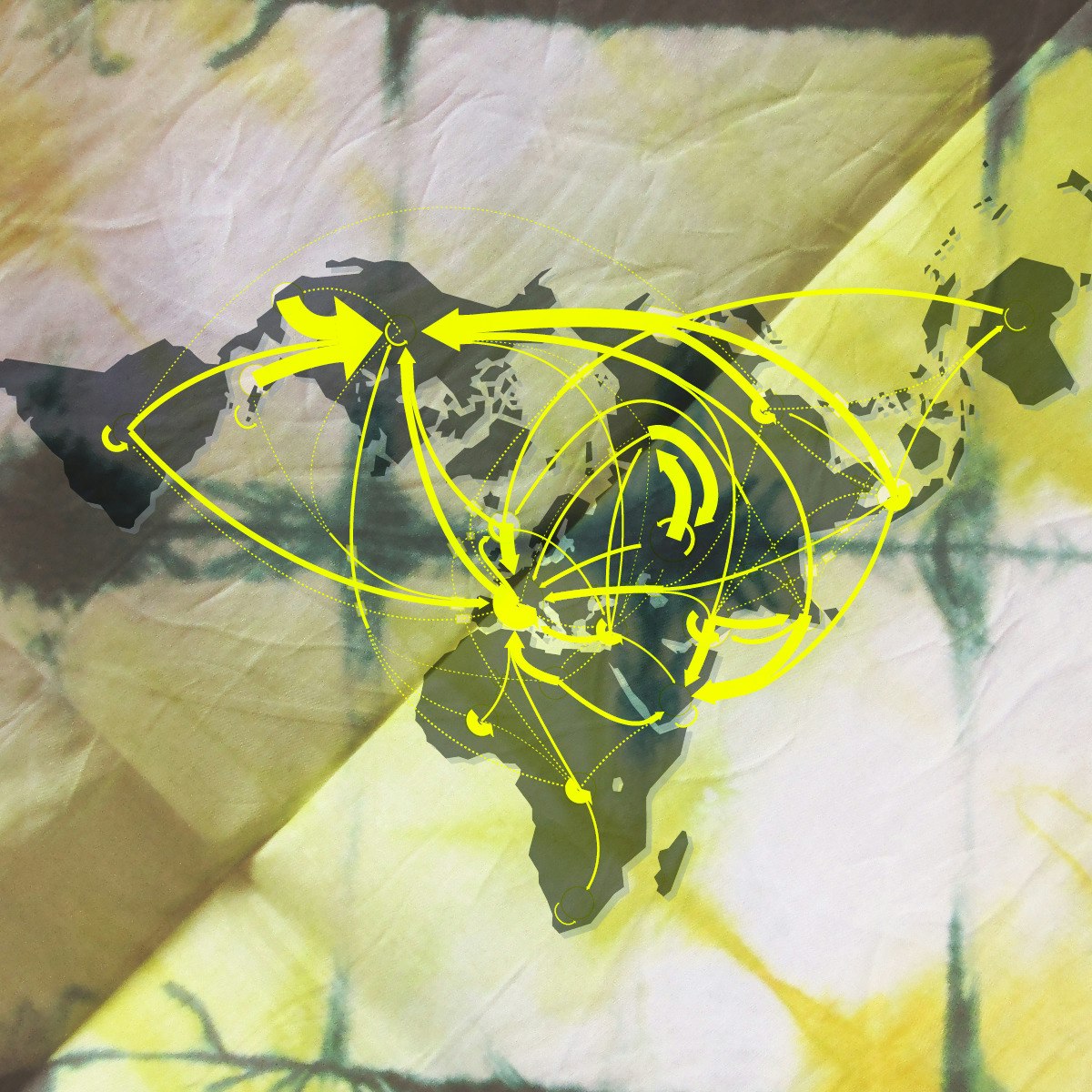Religion
An Introduction to the Study of Religion
Religion, in its broadest sense, refers to systems of belief and practice that relate humanity to spirituality and, often, to moral values. It encompasses a vast array of traditions, rituals, texts, and communities that have profoundly shaped human history, culture, society, and individual lives across the globe. Studying religion involves exploring these diverse systems not necessarily to adopt a particular faith, but to understand their origins, development, core tenets, and impact on the world.
Engaging with the study of religion offers a unique window into the human condition. It allows for exploration of fundamental questions about existence, meaning, morality, and the nature of the sacred. Furthermore, understanding religious traditions is crucial for navigating an increasingly interconnected world, fostering interfaith dialogue, and appreciating the complex tapestry of human cultures. For many, delving into religious studies is an intellectually stimulating journey that intersects with history, philosophy, sociology, anthropology, and art.
Core Concepts and Foundational Beliefs
Understanding the academic study of religion requires familiarity with its fundamental building blocks. These concepts provide a framework for comparing and contrasting different traditions and analyzing their significance.
The Nature of Divinity and Sacred Texts
Central to many, though not all, religious traditions is the concept of the divine or the sacred – a reality considered ultimate, transcendent, or fundamentally different from the ordinary. Conceptions of the divine vary immensely, ranging from monotheistic beliefs in a single, personal God (as in Judaism, Christianity, and Islam) to polytheistic systems with multiple deities (like Hinduism or ancient Greek religion), and non-theistic traditions focusing on spiritual liberation or cosmic principles (such as certain schools of Buddhism or Daoism).
Sacred texts often serve as foundational sources for religious beliefs, practices, and laws. These scriptures, believed by adherents to be divinely inspired or to contain profound truths, range from the Torah in Judaism, the Bible in Christianity, and the Quran in Islam, to the Vedas and Upanishads in Hinduism, the Tripitaka in Buddhism, and many others. Analyzing these texts involves understanding their historical context, literary forms, interpretive traditions, and role within their respective communities.
Developing a foundational understanding of religious diversity and the importance of scriptural analysis is key. These courses offer insights into how different traditions approach core beliefs and texts.
Rituals, Symbols, and Worship Practices
Religious life is often expressed through rituals – prescribed actions performed in specific contexts, imbued with symbolic meaning. Rituals can mark life transitions (birth, marriage, death), commemorate historical events, facilitate connection with the divine, or reinforce community bonds. Examples include prayer, meditation, pilgrimage, ceremonial meals, sacrifices, and seasonal festivals.
Symbols are potent vehicles for conveying religious meaning, often representing complex ideas or sacred realities in a condensed form. The Cross in Christianity, the Star of David in Judaism, the Om symbol in Hinduism, or the Wheel of Dharma in Buddhism are powerful examples. Understanding these symbols requires exploring their origins and interpretations within specific traditions.
Worship practices encompass the various ways communities and individuals engage with the sacred. This can involve communal gatherings in dedicated spaces (temples, churches, mosques, synagogues), private devotion, chanting, singing, dancing, or acts of service. These practices are central to the lived experience of religion for billions worldwide.
Exploring the rich tapestry of human religious expression requires understanding its practical manifestations. These resources delve into the societal and philosophical underpinnings of religious life.
Moral and Ethical Frameworks
Religions typically provide comprehensive moral and ethical frameworks that guide believers' conduct and shape their understanding of right and wrong. These frameworks often derive from sacred texts, divine commandments, traditions, or philosophical reasoning about the nature of reality and human purpose. They address personal behavior, social relationships, justice, compassion, and the pursuit of a virtuous life.
While specific ethical teachings vary widely, common themes often emerge, such as the importance of honesty, fairness, kindness, and responsibility towards others. Religions frequently offer narratives, laws, and role models to illustrate and reinforce these values. Studying these frameworks involves examining their content, philosophical justifications, and practical application in believers' lives.
Understanding the ethical dimensions of different faiths is crucial for appreciating their societal impact and role in shaping individual character. It also highlights areas of both common ground and significant divergence between traditions.
Historical Development of Religious Traditions
Religions are not static entities; they evolve over time, responding to historical events, cultural shifts, and internal developments. Understanding this historical dimension is essential for grasping the complexities of contemporary religious landscapes.
Origins of Major Religions
The origins of major world religions are often traced back to specific historical figures, founding events, or formative periods. Judaism emerged among the ancient Israelites, Christianity originated with Jesus of Nazareth and his followers in Roman Judea, and Islam began with the revelations received by the Prophet Muhammad in 7th-century Arabia. Hinduism evolved over millennia from ancient Vedic traditions in the Indian subcontinent, while Buddhism originated with Siddhartha Gautama (the Buddha) in ancient India.
Studying these origins involves examining historical evidence, archaeological findings, and the earliest available texts. It requires careful consideration of myth, legend, and historical fact, recognizing that foundational narratives often blend these elements. Understanding the initial context—social, political, and cultural—in which a religion emerged is key to interpreting its early development.
Tracing the roots of religious traditions provides crucial context for their later evolution. Examining specific historical periods or regions can illuminate these processes.
Evolution of Doctrines Over Time
Religious doctrines—core beliefs and teachings—are rarely fixed. They undergo processes of interpretation, elaboration, debate, and reform throughout history. Councils, synods, influential theologians, philosophical movements, and interactions with other cultures can all shape doctrinal development. For instance, Christian doctrines about the nature of Christ were debated and formalized over several centuries, while Islamic legal schools developed distinct interpretive methodologies.
New challenges and changing social norms often prompt re-evaluation or re-interpretation of existing doctrines. The rise of science, shifts in gender roles, or encounters with different belief systems can lead to internal tensions and diverse responses within a religious tradition. Studying this evolution reveals the dynamic interplay between tradition and change.
Understanding how beliefs have changed requires engaging with theological and historical scholarship. These resources offer perspectives on the development of religious thought.
Impact of Colonialism and Globalization
The modern era, particularly the periods of European colonialism and subsequent globalization, has had a profound impact on religious traditions worldwide. Colonial powers often suppressed indigenous religions while promoting Christianity, leading to complex syncretic blends and lasting power imbalances. Missionary activities, both Christian and Islamic, significantly altered religious demographics in many regions.
Globalization has further intensified interactions between different religious traditions. Migration has created religiously diverse societies, leading to new challenges and opportunities for interfaith relations. Modern communication technologies allow for the rapid spread of religious ideas and the formation of transnational religious communities, while also facilitating exposure to secular viewpoints and alternative beliefs.
These global forces continue to shape religious identities, practices, and conflicts in the 21st century. Understanding these dynamics is crucial for analyzing contemporary religious trends and their political and social implications.
Major World Religions
While countless religious traditions exist, a few major world religions encompass the vast majority of the global population. Understanding their basic tenets, practices, and distributions provides a crucial foundation for navigating religious diversity.
Comparative Analysis of Beliefs and Practices
Comparing world religions involves examining similarities and differences in their core beliefs (about God, the universe, human nature, afterlife), key practices (worship, rituals, festivals), sacred texts, ethical teachings, and community structures. For example, Abrahamic religions (Judaism, Christianity, Islam) share common roots and figures but differ significantly on the identity of prophets and the nature of God's covenant. Dharmic religions (Hinduism, Buddhism, Jainism, Sikhism) originating in India share concepts like dharma, karma, and cyclical time but diverge on notions of deity and paths to liberation.
Comparative study requires sensitivity and avoids simplistic generalizations. It aims to appreciate the unique logic and worldview of each tradition while identifying potential points of connection or contrast. This approach fosters deeper understanding and challenges ethnocentric perspectives.
These resources provide broad overviews and comparative frameworks for understanding the world's major faiths.
Demographic and Geographic Distribution
Understanding where different religious communities are located and their relative sizes is important for grasping global religious dynamics. Christianity is the largest religion globally, with significant populations across Europe, the Americas, sub-Saharan Africa, and parts of Asia. Islam is the second largest, concentrated in the Middle East, North Africa, Central Asia, and Southeast Asia, with growing communities elsewhere. Hinduism is predominantly practiced in India and Nepal.
Buddhism has major followings across East and Southeast Asia. Judaism, though smaller in numbers, has a global presence with significant populations in Israel and the United States. Numerous other traditions, including Sikhism, Baha'i Faith, Jainism, Shinto, Daoism, and diverse indigenous religions, have distinct regional concentrations and diasporic communities. According to projections by the Pew Research Center, the religious landscape continues to shift, with significant growth expected for Islam and Christianity, particularly in sub-Saharan Africa.
These demographic realities influence cultural interactions, political dynamics, and international relations. Mapping the global religious tapestry helps contextualize current events and understand diverse societal structures.
Interfaith Dialogue and Conflicts
The interaction between different religious traditions throughout history has involved both cooperation and conflict. Interfaith dialogue aims to foster mutual understanding, respect, and collaboration between people of different faiths. It often focuses on shared values, addressing common societal challenges, and promoting peace.
However, religious differences have also been exploited or have genuinely contributed to tensions, persecution, and violent conflict. Historical examples range from religious wars in Europe to communal violence in South Asia. Contemporary conflicts sometimes have religious dimensions, although political, economic, and ethnic factors are often intertwined.
Understanding the history and dynamics of interfaith relations is crucial for promoting tolerance and navigating religious diversity constructively in pluralistic societies. It requires acknowledging both the potential for harmony and the reality of conflict.
Formal Education Pathways in Religion
For those seeking a deeper academic or professional engagement with religion, formal education offers structured pathways. Universities and theological seminaries provide programs ranging from undergraduate minors to doctoral degrees.
Undergraduate and Graduate Degree Programs
Bachelor of Arts (BA) degrees in Religious Studies or Theology typically provide a broad introduction to major world religions, methodologies for studying religion (historical, sociological, philosophical), and opportunities to specialize in specific traditions or themes. These programs develop critical thinking, analytical writing, and cross-cultural understanding skills applicable to various fields.
Master of Arts (MA) programs allow for more specialized study and research, often serving as preparation for doctoral work or certain professional roles (e.g., secondary education, non-profit administration). PhD programs in Religious Studies or related fields (like History, Anthropology, or Sociology with a focus on religion) train students for academic research and university-level teaching. Professional degrees like the Master of Divinity (MDiv) are standard preparation for ordained ministry in many Christian denominations, focusing on theology, biblical studies, pastoral care, and practical ministry skills.
Choosing a program depends on individual goals, whether academic, professional, or personal enrichment. Researching specific university departments and faculty expertise is crucial.
Research Opportunities in Theology/Religious Studies
Graduate programs, particularly at the PhD level, are centered on original research. Students work closely with faculty advisors to develop expertise in a specific area, such as a particular religious tradition (e.g., Tibetan Buddhism, Reformation Christianity), a historical period (e.g., Ancient Near Eastern Religions), a thematic focus (e.g., Religion and Gender, Religion and Politics), or a methodological approach (e.g., Anthropology of Religion, Philosophy of Religion).
Research often involves working with primary sources in original languages (e.g., Hebrew, Greek, Latin, Arabic, Sanskrit, Pali, Chinese), conducting ethnographic fieldwork, analyzing historical documents, or engaging in philosophical and theological inquiry. Opportunities may exist for presenting research at academic conferences and publishing in scholarly journals. This path requires significant dedication, intellectual curiosity, and strong research and writing skills.
Many universities offer robust programs. For example, institutions like Harvard Divinity School or the University of Chicago Divinity School are renowned centers for religious studies and theological research, though excellent programs exist at many other universities.
Certifications for Specialized Roles
Beyond traditional degrees, specialized certifications cater to specific professional roles related to religion. Chaplaincy certification, for instance, prepares individuals to provide spiritual care in settings like hospitals, hospices, prisons, the military, or universities. This typically requires graduate theological education (often an MDiv) plus supervised clinical pastoral education (CPE).
Other certifications might exist for religious educators, pastoral counselors, or spiritual directors, often offered by denominational bodies, professional organizations, or specialized training centers. These programs focus on practical skills and professional standards relevant to the specific role.
These certifications often supplement formal academic training, providing the specific competencies needed for particular forms of service or ministry. Requirements vary significantly depending on the field and the certifying body.
Online and Self-Directed Learning in Religion
Formal degree programs are not the only way to explore the vast field of religion. Online courses and self-directed study offer flexible and accessible avenues for learning, whether for personal enrichment, supplementing formal education, or exploring career interests.
Structured Learning Paths for Beginners
For those new to the academic study of religion, online platforms provide excellent starting points. Introductory courses often cover major world religions, key concepts, and different approaches to studying religious phenomena. Platforms like OpenCourser allow you to browse courses specifically in Religion, compare syllabi, and read reviews to find suitable options.
Creating a self-directed learning path might involve starting with a broad survey course, then delving into specific traditions or themes that capture your interest. You can use OpenCourser's features, like saving courses to a list using the "Save to List" button, to curate your own curriculum. Supplementing courses with foundational readings can provide greater depth.
Online learning offers flexibility, allowing you to study at your own pace and focus on areas most relevant to your interests. The key is to approach it systematically, setting learning goals and choosing high-quality resources.
These courses provide accessible introductions for those beginning their exploration of religious studies.
Resources for Comparative Religious Studies
Online resources are particularly valuable for comparative religious studies. Courses and materials often bring together experts on different traditions, facilitating a comparative perspective that might be harder to achieve through traditional, single-focus programs. You can explore courses that explicitly compare belief systems, ethical frameworks, or historical interactions between different faiths.
Beyond formal courses, numerous online archives, digital libraries, and academic websites offer access to sacred texts (often in translation), scholarly articles, and encyclopedia entries on various religious topics. Utilizing these resources allows for independent research and deeper comparative analysis.
Leveraging online platforms enables learners to juxtapose different traditions effectively, identifying common themes and unique characteristics across diverse religious landscapes.
These resources offer perspectives useful for comparing different religious traditions and philosophical outlooks.
Project-Based Learning
Applying knowledge through projects can significantly enhance learning. For religious studies, this could involve researching the history of a local religious community, organizing or participating in an interfaith dialogue event, analyzing religious themes in art or literature, or writing a comparative essay on a specific topic using online resources.
Engaging with local religious communities (respectfully and ethically) can provide invaluable firsthand insights that complement academic study. This might involve attending services (where appropriate and permitted), interviewing community members (with permission), or volunteering with faith-based service organizations.
Combining online coursework with practical, community-based projects or independent research allows for a richer, more integrated learning experience. OpenCourser's Learner's Guide offers tips on structuring self-directed learning and making the most of online educational resources.
Career Progression and Opportunities in Religious Fields
A background in religious studies can lead to a diverse range of career paths, extending beyond traditional ministry roles. The skills developed—critical thinking, cross-cultural understanding, research, communication—are valuable in many sectors.
Entry-Level Roles
Entry-level positions often involve working within religious organizations, educational institutions, or non-profits. Roles might include Religious Education Coordinator, Youth Minister, Community Outreach Worker, Program Assistant at an interfaith organization, or Administrative Support in a church, synagogue, or mosque.
Other possibilities include working in museums with religious collections, archives specializing in religious history, or entry-level positions in social work where understanding clients' religious backgrounds is beneficial. These roles provide practical experience and exposure to the field, often serving as stepping stones to more advanced positions.
While some roles may require specific theological training or denominational affiliation, others are open to individuals with a strong academic background in religious studies and relevant skills.
Advanced Careers
Advanced careers typically require further education and experience. Ordained ministry (Pastor, Priest, Rabbi, Imam) usually necessitates a professional theological degree (like an MDiv) and meeting denominational requirements. Academic careers as university professors or researchers demand a PhD in Religious Studies or a related discipline.
Other advanced roles include Chaplain (requiring graduate theological education and CPE), specialized Pastoral Counselor, Director of a faith-based non-profit organization, expert consultant on religious affairs for government or NGOs, or specialists in interfaith relations or diplomacy. These positions often involve leadership, specialized expertise, and significant responsibility.
Pursuing these paths requires long-term commitment to education and professional development. The journey can be demanding, but also deeply rewarding for those called to these fields. It's important to research the specific requirements and realities of each potential career path early on.
Volunteer Work and Internships
Gaining practical experience through volunteering and internships is highly valuable, especially for those exploring careers related to religion. Opportunities abound in local congregations, faith-based charities, interfaith councils, campus ministry groups, and museums or cultural heritage sites.
These experiences allow you to test your interests, develop relevant skills, build a professional network, and gain insights into the day-to-day realities of working in the field. Even short-term volunteer commitments can strengthen a resume and provide valuable learning opportunities.
For students considering graduate studies or specific professional roles like chaplaincy, relevant volunteer work or internships are often expected or even required. Actively seeking out these opportunities demonstrates initiative and commitment.
Ethical Considerations in Religious Practice and Study
Engaging with religion, whether as a practitioner, scholar, or professional, inevitably involves navigating complex ethical considerations. Maintaining objectivity while respecting deeply held beliefs, and grappling with challenging aspects of religious traditions, requires sensitivity and critical reflection.
Balancing Tradition with Modern Values
Many religious traditions grapple with tensions between long-established doctrines or practices and contemporary social values, scientific understandings, or human rights norms. Issues related to gender roles, sexuality, social hierarchy, or interpretations of sacred texts can create significant internal debate and challenges for adherents.
Studying or working within religious contexts often requires understanding these tensions. It involves appreciating the weight of tradition for believers while also critically examining practices or beliefs that may conflict with modern ethical sensibilities concerning equality, autonomy, or justice. Navigating this requires intellectual humility and a commitment to nuanced understanding.
This course encourages thoughtful reflection on differing viewpoints, a skill crucial for navigating ethical complexities.
Handling Controversial Teachings or Histories
Religious traditions, like all human institutions, have histories and teachings that can be controversial or problematic from a modern perspective. This might include instances of violence, intolerance, discrimination, or doctrines that appear ethically questionable today. Acknowledging and critically examining these aspects is essential for an honest and comprehensive understanding.
For scholars, this involves careful historical contextualization and avoiding apologetics or polemics. For practitioners and leaders, it may involve processes of theological reflection, reinterpretation, or reform to address problematic legacies while affirming core values.
Engaging with difficult aspects requires courage and integrity, whether in academic research or within a faith community. It is a necessary part of responsible engagement with religious traditions.
Religion in Policymaking and Human Rights
Religion frequently intersects with public life, influencing debates on law, policy, and human rights. Religious arguments are invoked on issues ranging from education and healthcare to foreign policy and environmental ethics. This intersection raises complex questions about the role of religious values in secular governance and the protection of religious freedom alongside other fundamental rights.
Understanding different religious perspectives on justice, governance, and human dignity is crucial for informed participation in public discourse. It also requires examining how religious actors and institutions engage in policymaking processes and advocate for particular social or political agendas.
Navigating the relationship between religion and state, and ensuring that policies respect both religious freedom and universal human rights, remains a significant challenge in many societies globally.
Religion in the Modern Workforce
Understanding religion extends beyond specialized fields; religious literacy is increasingly relevant in diverse professional settings. Awareness of religious beliefs and practices impacts workplace dynamics, market trends, and organizational management.
Religious Diversity in Corporate Settings
Modern workplaces are often religiously diverse environments. Understanding different religious holidays, dietary restrictions, prayer requirements, and values can foster a more inclusive and respectful workplace culture. This knowledge is valuable for human resources professionals, managers, and colleagues alike.
Accommodating religious practices, within legal and practical limits, can improve employee morale and retention. Conversely, ignorance or insensitivity can lead to misunderstandings, discrimination lawsuits, and a negative work environment. Resources on workplace diversity often include guidance on religious inclusion, such as materials provided by organizations like the U.S. Equal Employment Opportunity Commission.
Developing religious literacy contributes to effective leadership and teamwork in a globalized economy where interactions across cultural and religious lines are commonplace.
Market Trends in Faith-Based Organizations
The faith-based sector encompasses a wide range of organizations, including hospitals, universities, charities, social service agencies, and media outlets. These organizations often have specific missions rooted in religious values and cater to particular communities.
Understanding the operational dynamics, funding sources (including donations and endowments), and ethical commitments of these organizations is relevant for those working within them or partnering with them. Market trends may involve shifts in philanthropic giving, the growth of faith-based initiatives in certain sectors (like healthcare or education), or the adaptation of these organizations to changing social and economic landscapes.
This sector represents a significant part of the non-profit world and offers various career opportunities for those interested in combining professional skills with faith-based values.
Religion’s Impact on Consumer Behavior
Religious beliefs and affiliations can influence consumer choices, affecting markets for food (halal, kosher), finance (Islamic banking), fashion (modest clothing), travel (pilgrimage), and media. Understanding these influences can be relevant for marketing, product development, and business strategy in certain sectors.
While sometimes a niche consideration, awareness of religious factors can help businesses better understand and serve diverse customer bases. It requires sensitivity and avoids stereotypes, focusing on genuine needs and values expressed by different religious communities.
This intersection highlights how deeply embedded cultural factors, including religion, can shape economic activities and consumer preferences.
Current Trends and Future Challenges
The religious landscape is constantly evolving, shaped by global trends, technological advancements, and societal shifts. Understanding these dynamics is crucial for anticipating future developments and challenges.
Secularization vs. Religious Revivalism
Sociologists and demographers observe complex global trends regarding religious adherence. In many Western European countries and some other developed nations, secularization—a decline in religious belief and practice—appears ongoing. However, in other parts of the world, particularly in sub-Saharan Africa, Latin America, and parts of Asia, religion remains vibrant and, in some cases, is experiencing revival or growth.
Even within secularizing societies, spirituality may take new forms outside traditional institutions. Understanding these contrasting trends—secularization in some regions, resilience or revivalism in others—is key to analyzing the future role of religion globally. Factors like migration, generational change, and political contexts influence these diverse trajectories.
Data from organizations like the Pew Research Center's Religion & Public Life project provide valuable insights into these shifting global patterns.
Technology’s Role in Religious Practice
Technology is profoundly impacting how people practice and experience religion. Online platforms host virtual worship services, religious education classes, and discussion forums, creating new forms of religious community that transcend geographical boundaries. Social media facilitates the spread of religious ideas and connects believers globally.
Digital tools are used for studying sacred texts, accessing religious resources, and organizing faith-based activities. However, technology also raises new challenges, such as questions about the authenticity of virtual rituals, the spread of misinformation or extremist ideologies online, and the impact of digital life on traditional forms of religious community and authority.
The interplay between religion and technology will likely continue to evolve, reshaping religious expression and organization in the 21st century.
Climate Change and Religious Activism
Growing awareness of the climate crisis has spurred engagement from various religious communities worldwide. Many traditions contain ethical teachings about stewardship of creation, care for the poor (who are often most affected by environmental degradation), and the interconnectedness of life, which are being mobilized to address environmental challenges.
Faith-based organizations are increasingly involved in environmental advocacy, promoting sustainable practices within their communities, and engaging in interfaith collaboration on climate action. Figures like Pope Francis, with his encyclical Laudato Si', have brought significant religious attention to ecological issues.
This intersection highlights how religious values and networks can contribute to addressing pressing global challenges, positioning religious communities as potentially significant actors in movements for social and environmental justice.
Frequently Asked Questions (Career Focus)
Navigating a career path related to religious studies often brings up specific questions. Here are answers to some common inquiries:
Q: What careers combine religion with social work?
A: Several careers blend these fields. Chaplains provide spiritual care alongside social support in hospitals or prisons. Many faith-based non-profits run social service programs (homeless shelters, food banks, refugee resettlement) where a background in both religion and social work is advantageous. Pastoral counselors integrate theological understanding with counseling techniques. Program coordinators in community centers affiliated with religious groups often engage in social outreach.
Q: Do religious roles require formal ordination?
A: It depends entirely on the role and the specific religious tradition. Roles like priest, pastor, rabbi, or imam typically require formal ordination or equivalent recognition according to the standards of that faith community, which usually involves specific theological education and vetting. However, many other roles within religious organizations—educator, administrator, musician, community outreach coordinator, non-profit manager—do not require ordination.
Q: How transferable are religious studies skills to other fields?
A: Very transferable! Studying religion develops strong skills in critical thinking, textual analysis, historical research, cross-cultural communication, ethical reasoning, and understanding diverse perspectives. These abilities are valued in fields like education, journalism, law, diplomacy, international relations, non-profit management, museum work, archival research, and any profession requiring deep understanding of human culture and motivation.
Q: Is fluency in ancient languages necessary for research?
A: For advanced academic research (PhD level) focusing on the historical origins or textual interpretation of many religious traditions, proficiency in relevant ancient languages (like Hebrew, Greek, Latin, Sanskrit, Classical Arabic, Pali) is often essential for working directly with primary sources. However, for many other areas of religious studies (e.g., sociology of religion, contemporary religious practice, interfaith dialogue) or for undergraduate/MA level work, language requirements may be less stringent or focused on modern languages, though some language skill is usually beneficial.
Q: Can online learning lead to professional religious roles?
A: Online learning can be a valuable component, but its sufficiency depends on the role. Online courses are excellent for gaining foundational knowledge, exploring interests, or supplementing formal education. However, roles requiring ordination or specific professional licensure (like chaplaincy or licensed counseling) typically demand accredited graduate degrees from traditional institutions, often including in-person components like internships or clinical training. Online certificates or courses can enhance a profile but rarely replace formal degree requirements for licensed or ordained positions.
Q: What are the job prospects in interfaith organizations?
A: The field of interfaith work is growing but remains relatively small compared to larger sectors. Opportunities exist in non-profit organizations dedicated to interfaith dialogue and cooperation, universities (campus ministry or diversity offices), some government agencies focused on religious freedom or cultural relations, and international NGOs. Competition can be significant, and roles often require strong communication, program management, and cross-cultural skills, frequently supplemented by graduate education in religious studies, peace studies, or related fields.
Embarking on the study of religion, whether for academic pursuit, professional development, or personal understanding, is a journey into the heart of human culture and history. It demands critical thinking, empathy, and a willingness to engage with diverse and sometimes challenging ideas. While career paths directly in the field require dedication and often specific qualifications, the insights and skills gained are broadly applicable and enriching, fostering a deeper understanding of our complex world.











